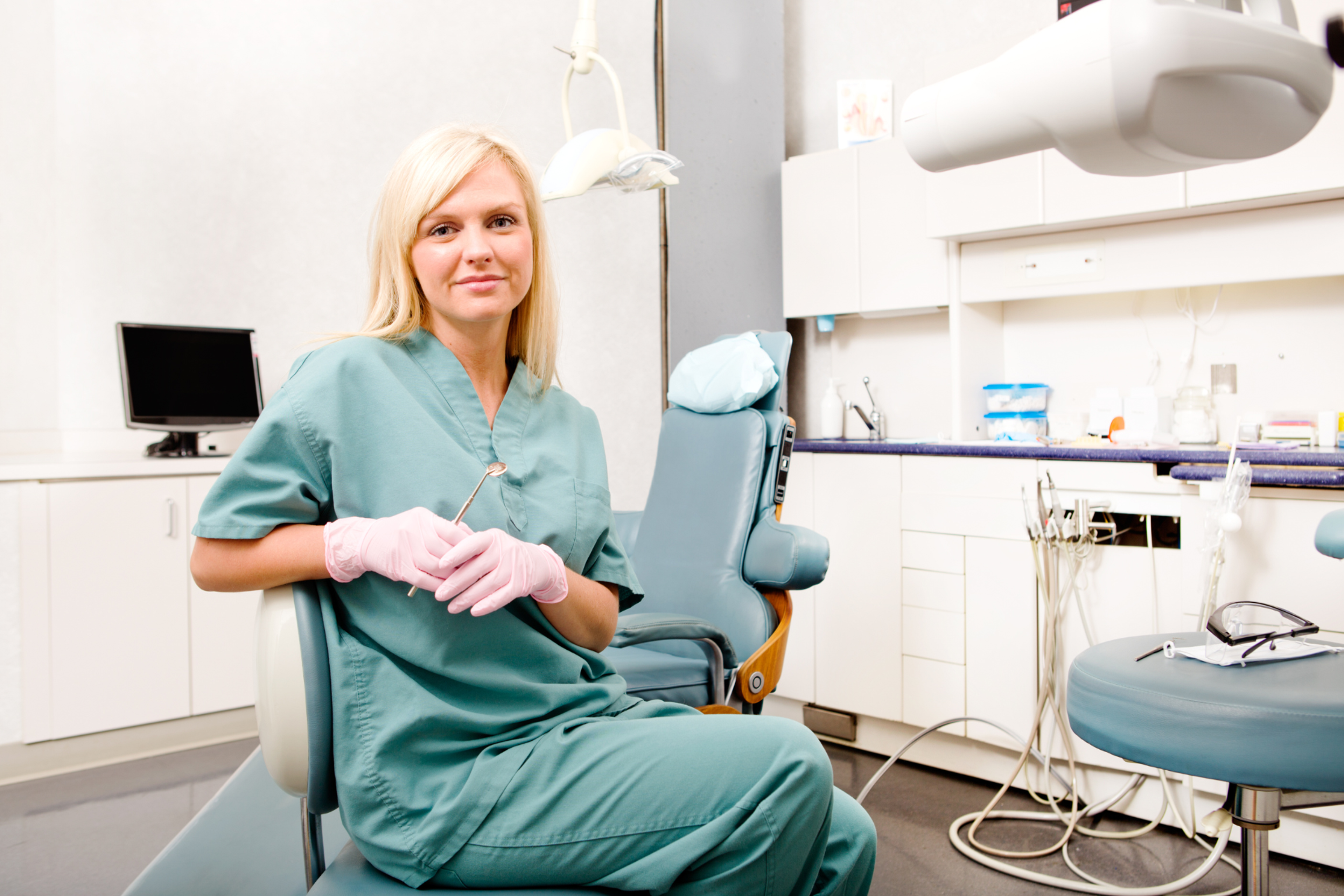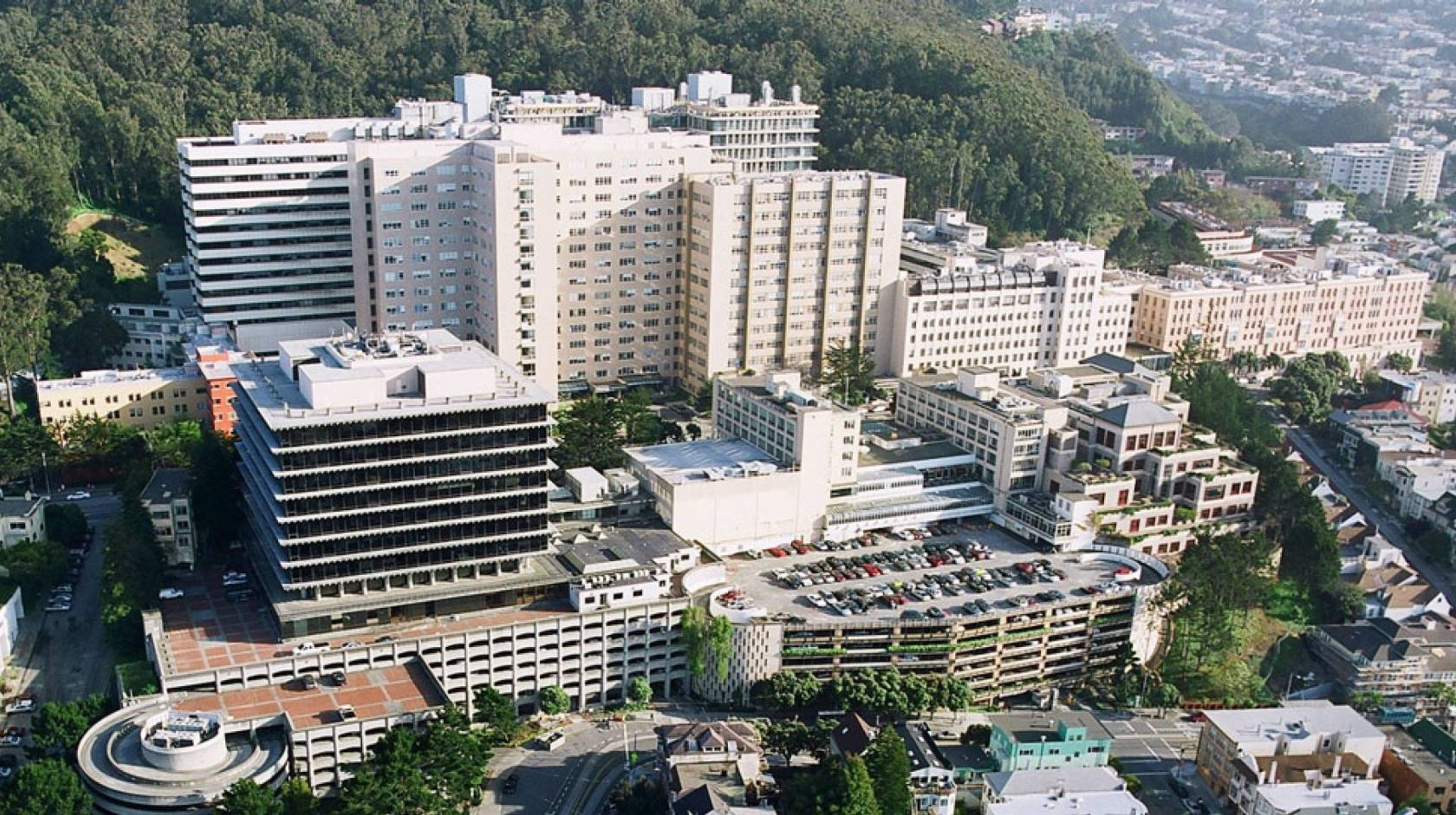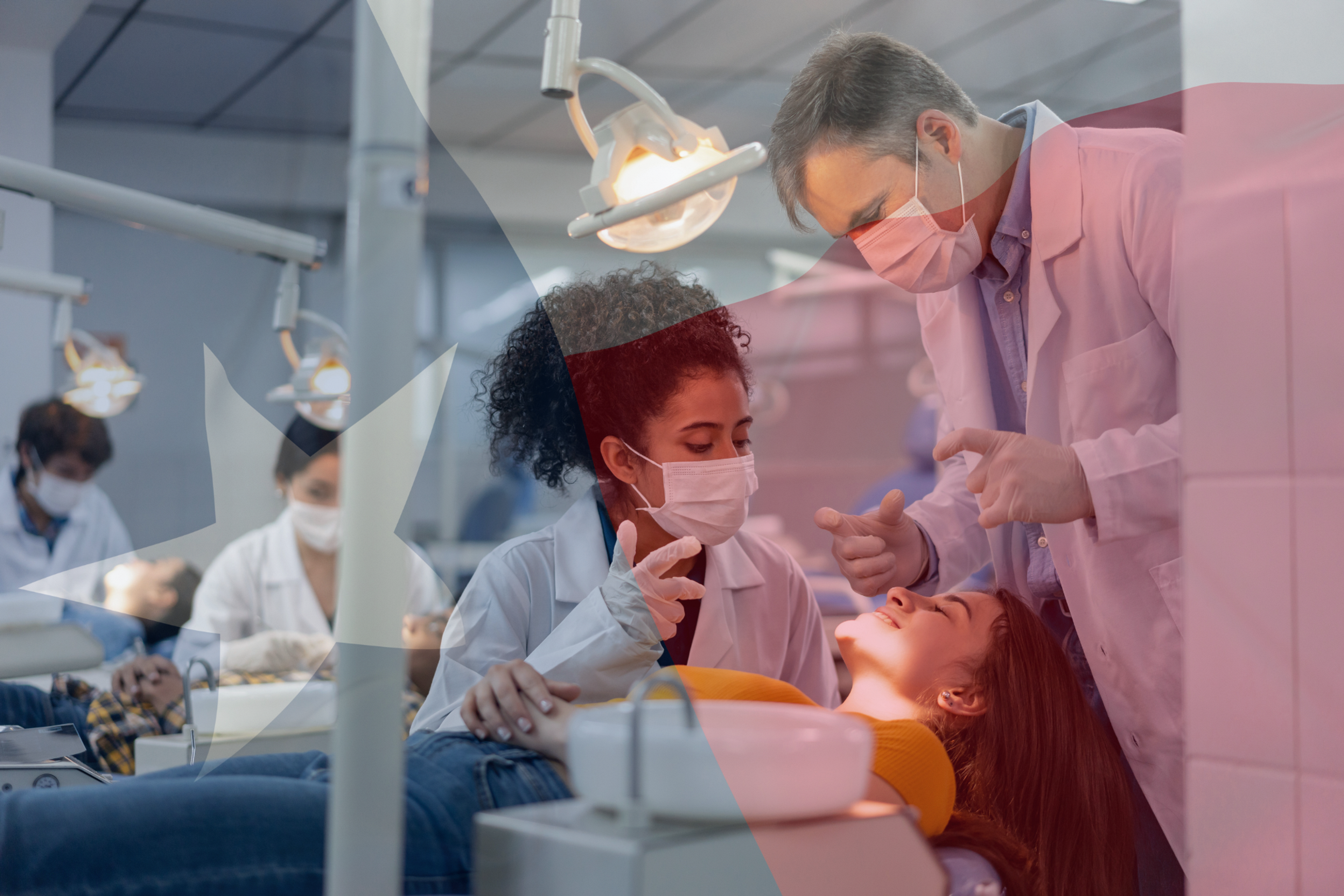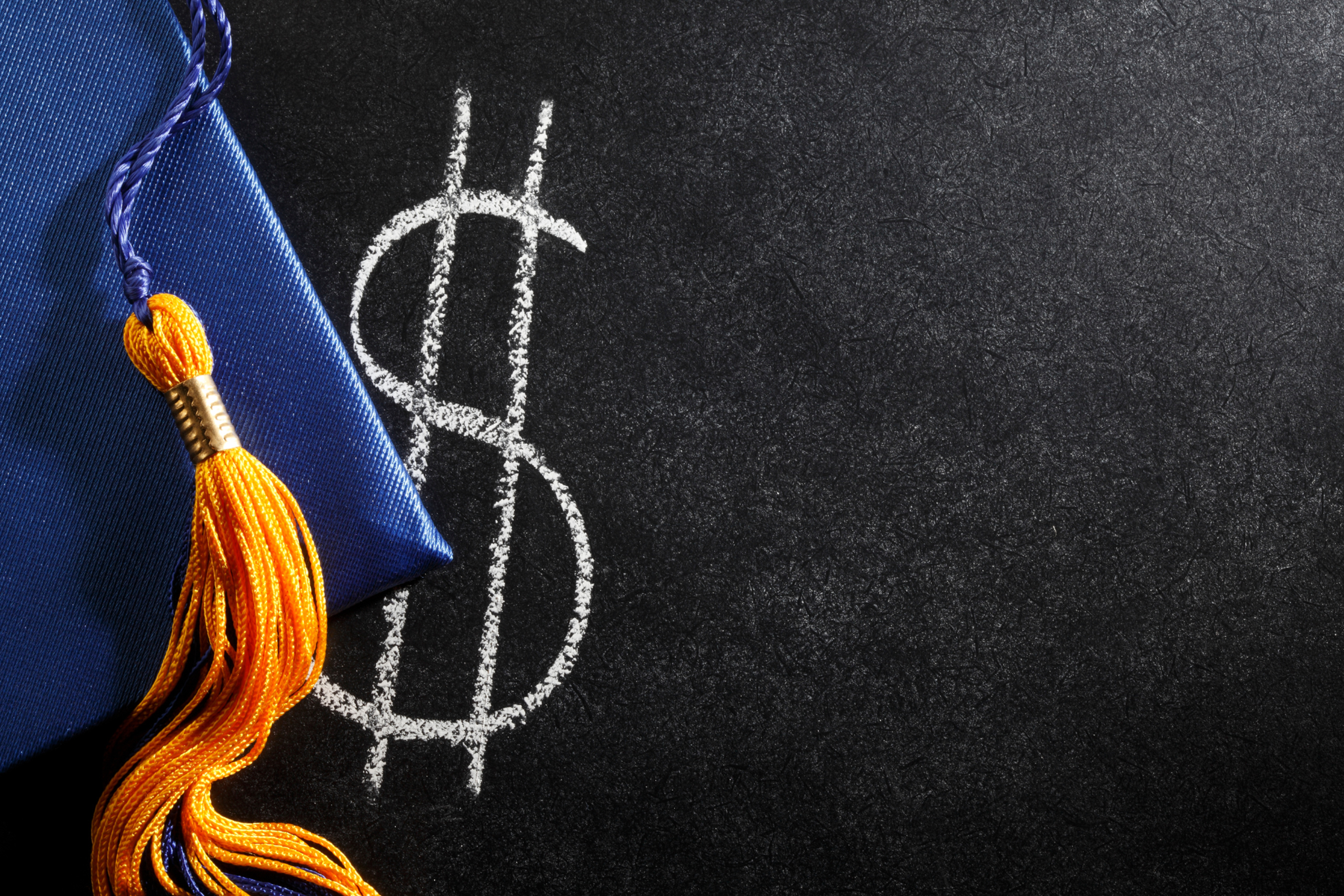Harvard School of Dental Medicine–Program and Application Overview
Applying to HSDM? Read this guide for insight into the application, curriculum, class profile, and more, and learn practical strategies from experts to get you that much closer to your dream DMD program.
Posted June 13, 2025
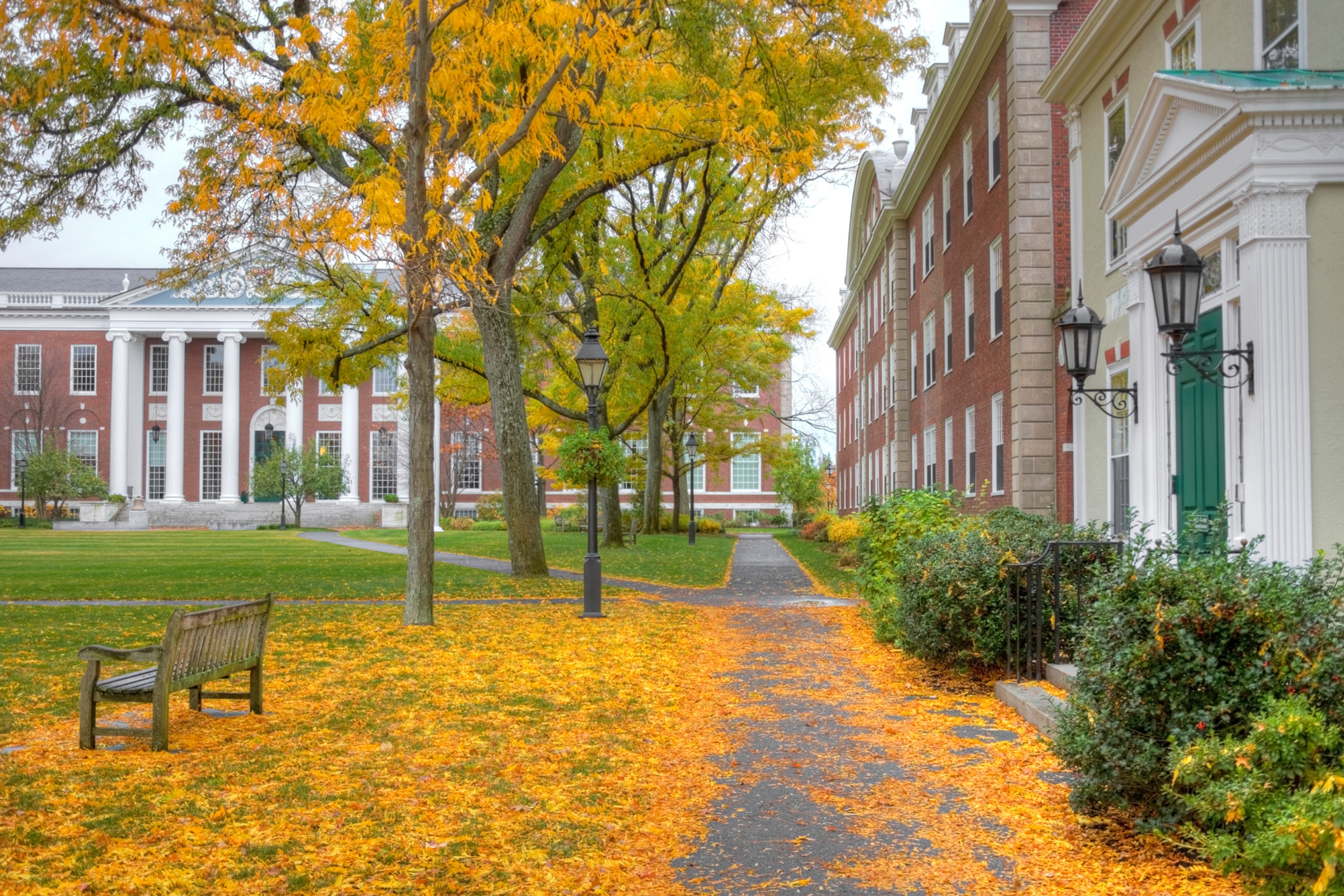
Table of Contents
The Harvard School of Dental Medicine is consistently ranked as one of the best dental schools in the country. It boasts a world-class faculty; educates dentists, researchers, educators, and leaders; and provides rigorous learning opportunities for students, both locally and around the world. It’s also the only school at Harvard University that offers direct patient care; the Harvard Dental Center works with over 25,000 patients for nearly 60,000 dental visits each year.
HSDM students will study clinical medicine with Harvard medical students before diverging into interdisciplinary, intensive, dental education. In this article, we’ll provide a few of the class profile statistics, dig into each part of the DMD application, go over the program and curriculum, and answer some frequently asked questions.
At Leland, we’re committed to helping you get into a top DMD program. To stay up to date on classes/events and receive exclusive resources, guides, templates, and more, make sure that you’ve signed up for Leland.
Harvard School of Dental Medicine Class Profile (Class of 2027)
- Applicants: 1,100
- Accepted Students: 35
- Acceptance Rate: 3.18%
- Women: 69%
- Average DAT: 22
- Average GPA: 3.95
Application Overview (2023-2024)
In order to be eligible to apply to the Harvard School of Dental Medicine, applicants will need to have completed all the prerequisite courses, graduated from an undergraduate institution with a competitive GPA, and taken the Dental Admissions Test (DAT). You’ll also need to submit a preliminary application through the ADEA Associated American Dental Schools Application Service (AADSAS) to all your target schools.
HSDM will then reach out to selected applicants and invite them to interview. They’ll also be asked to submit a supplemental questionnaire prior to the interview. The interview will take place virtually or in person. Harvard will begin offering admissions decisions starting in mid-December on a rolling basis.
Required Courses
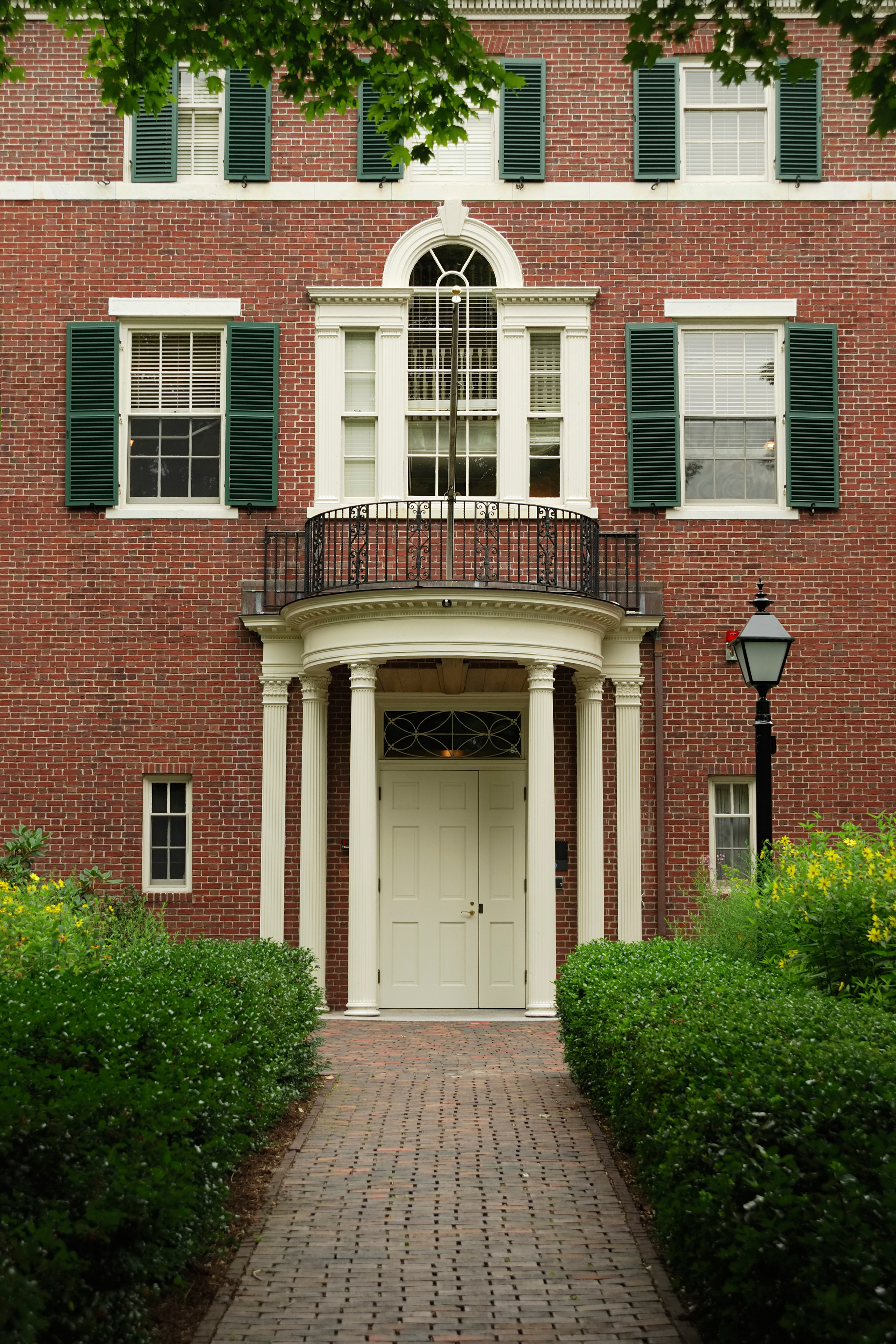
Required Courses
- Biochemistry: 3 credit hours, 1 semester
- Biology with lab: 8 credit hours, 2 semesters
- Inorganic or General Chemistry with lab: 8 credit hours, 2 semesters
- Organic Chemistry with lab: 8 credit hours, 2 semesters
- Physics with lab: 8 credit hours, 2 semesters
- English: 6 credit hours, 2 semesters
- Calculus I/II and Statistics: 6 credit hours, fulfilled by 1 semester of calculus and 1 semester of statistics or 2 semesters of calculus
* Credit hours for Biology, General Chemistry, Organic Chemistry, and Physics assume a 4 credit course per semester. Students from universities operating on different credit-hour systems are required to complete the equivalent of two full semesters.
Recommended Courses
- Cell Biology
- Microbiology
Community college and AP courses that appear for credit on your four-year institution’s transcript may be used to fulfill these requirements. However, HDSM recommends that applicants complete the coursework, especially the science courses, at a four-year institution. IB credits may not be used to fulfill these requirements.
Dental Admissions Test (DAT)
The HSDM application accepts unofficial DAT scores taken before June 1, 2020, but you will need to submit your official scores to receive an admissions decision.
Top Tips for the DAT
- Spend more time studying key concepts rather than specific facts
- Learn how to read fast, the easiest way to do this is just to read more
- Practice! Take official practice tests so you’ll go into the test knowing what to expect and take at least one under real conditions
- Make sure you have a solid understanding of the content covered in the undergrad, prerequisite courses; a lot of the questions will be grounded in concepts from them
- Focus your time on your weaknesses – there is no need to spend precious study time on the topics that you perform well on
Letters of Evaluation
You’ll need to submit either three individual letters of evaluation from professors who know you in an academic capacity (you took one of their courses, they oversaw your academic work as an academic advisor, or they served as your research/thesis mentor) or one letter from a pre-health committee in your AADSAS application.
If you are submitting three individual letters, at least two must be from science professors. The admissions committee also accepts letters coauthored by a professor and a teaching assistant for students in large lecture classes. If you choose to submit an additional letter of recommendation, which HSDM recommends come from a supervisor or dentist you shadowed, your recommender should email it directly to the Harvard DMD Admissions Committee.
HSDM Interviews
Interviews at HSDM are necessary for admission and extended on an invitation-only basis. During your interview, you will be asked to “articulate [your] knowledge and experience, suitability for the program, and potential contribution to the field of dentistry.”
Prior to the interview, applicants are asked to fill out a supplemental application. This is not available on the website and is only sent to those invited to interview. Interviews are offered both in-person and virtually. Those who interview will be reviewed by the admissions committee who vote individually on each applicant.
If you are extended an interview, you can choose either a virtual or in-person format. Interviews will include:
- Orientation with a current student and the Director of Admissions
- Two individual interviews with members of the Admissions Committee
- Current student panel
- Diversity, Inclusion & Belonging session
- Financial aid session
- Campus tour (if you are interviewing in-person)
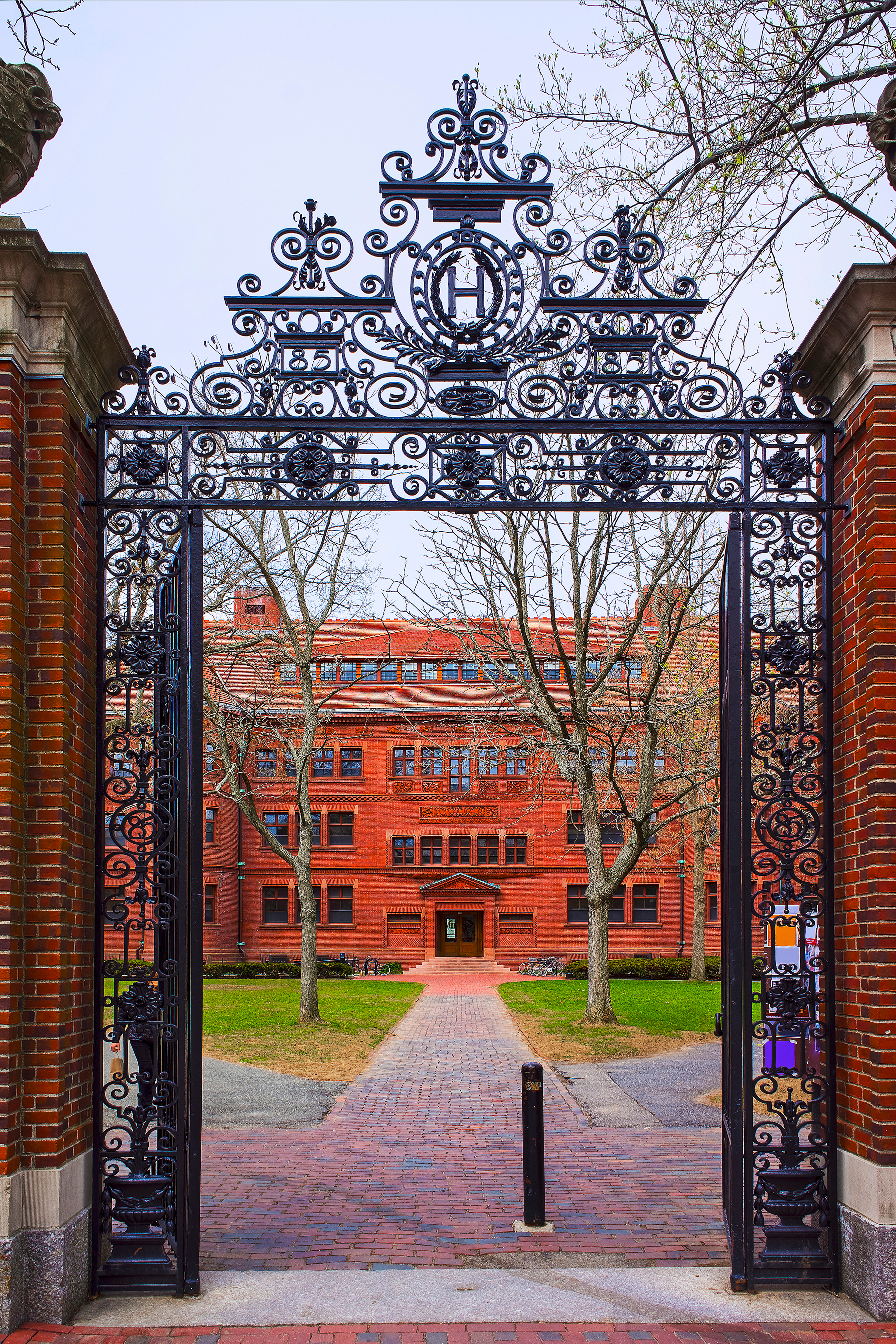
Our Top Tips for the HSDM Interview
- Demonstrate how you align with the school's vision, mission, and values during your interview
- Vision: to transform access to healthcare and advance science to prevent and find cures for oral diseases and conditions
- Mission: to foster a community of diverse global leaders in education, research, and clinical innovation dedicated to improving human health by integrating dentistry and medicine
- Core values: Inclusion, Diversity, Innovation, Excellence, Respect, Integrity, Compassion
- Come prepared with comprehensive answers to common questions, such as “Why do you want to become a dentist?” or “Why Harvard?”
- Come with a list of questions for your interviewer. The interview is also your chance to learn more about the program
- Be yourself! Show your authentic self and your unique strengths, not just what you think your interviewer wants to hear
Other Application Materials
- Official college and university transcripts
- Completed AADSAS application
- $80 supplemental application fee
- Applicants who receive an ADEA AADSAS fee waiver, are a member or veteran of the U.S. Armed Forces, or a CSTEP student at the University of Buffalo, are eligible for a fee waiver
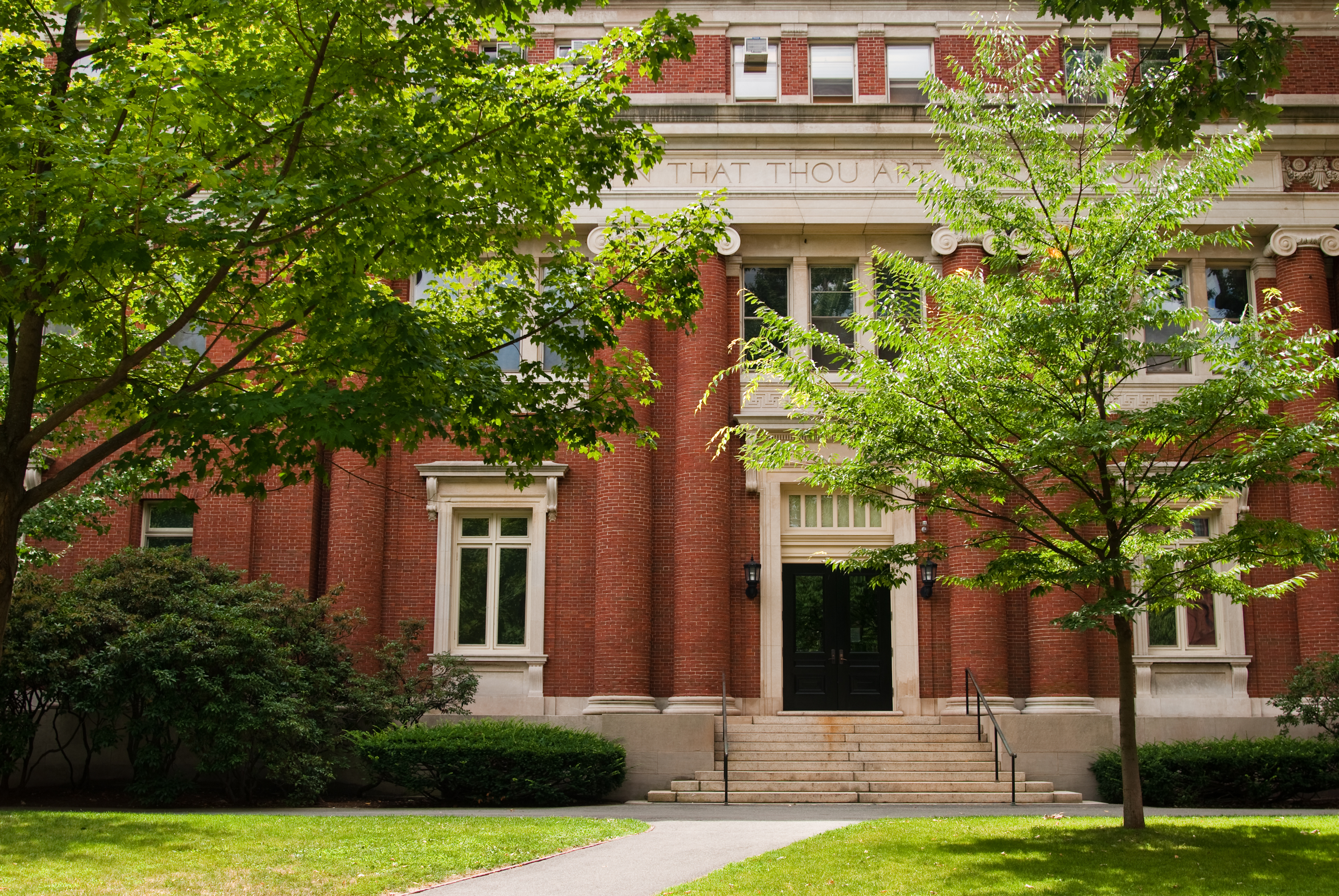
Year 1: Foundations of Medicine
The courses in the first year are taught by Harvard Medical School faculty and cover fundamental medicine sciences. Students will first take Foundations and Immunity in Defense and Disease, two courses about organ systems, and begin The Practice of Medicine, a longitudinal clinical course. They then begin a month focused on the fundamental social and population sciences: healthcare policy, social medicine, clinical epidemiology and population health, and medical ethics and professionalism. The remainder of the year is spent around the organ-system-based modules: Homeostasis I and II and Mind, Brain, Behavior, and Development, covering the anatomy, physiology, pathophysiology, pathology, pharmacology, imaging, and nutrition of each organ system. Students will also participate in primary care clinical observations at the Harvard School of Dental Medicine Teaching Practices clinic.
All courses are Pass/Fail. This first year is intended to teach the building blocks of medicine, the fundamentals of clinical experience, the dynamics of working in teams, and the connection between systemic and oral health.
Year 2: Integrated Oral Health Foundations
Starting in D2, the DMD curriculum becomes more dental-focused. Second-year DMD students will take three longitudinal courses, including Dental Basic Science Foundations, which covers dental anatomy, craniofacial development and genetics, oral microbiology and immunology, oral physiology, and oral pathology and radiology. Clinical observation rotations will shift from primary care to dental topics such as oral medicine, oral hygiene, pediatric dentistry, behavioral science, the role of nutrition, and dental treatment for patients with special needs.
Second-year students will also begin a required research project, the topic of which can be any area of dental research, under the guidance of a mentor. This project involves research design, data gathering and analysis, and a presentation or publication of results, and must be completed by the end of the fourth year.
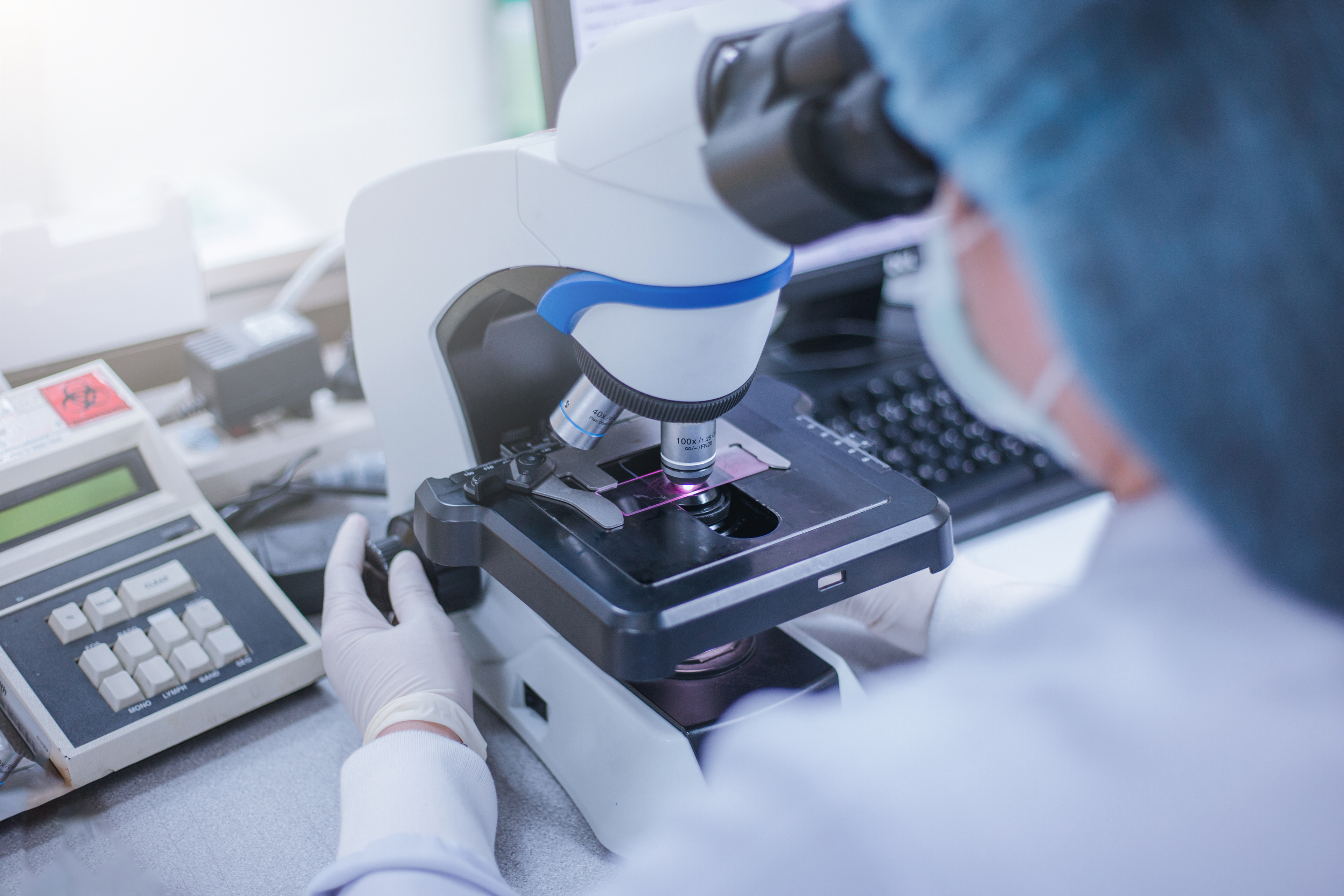
Year 3: Principal Clinical Experience & Preclinical/Clinical Skills and Comprehensive Care
The Principal Clinical Experience involves a set of interdisciplinary courses performed in a case-based, flipped classroom format. Once students have achieved preclinical competence, they begin evaluating and treating patients while taking Occlusion, Malocclusion, and Treatment, a longitudinal course addressing issues specific to dental patient care and management. Students will also take clinical courses and Dental Health Care Delivery and Ethics and present a case to faculty and colleagues.
Year 4: Advanced Clinical Experiences (Rotations)
In the final year, students complete clinical rotations, an externship experience, a case presentation, and elective opportunities to round out their dental education. The three-month Comprehensive Care Rotation consists of continuing dental care to patients at HSDM, but involves more advanced techniques in prosthetics, esthetic dentistry, and implantology. Students will also participate in a three-month general dentistry rotation at a Veterans Affairs hospital or an affiliated community center to gain experience treating patients with a wide variety of needs outside of the School’s Teaching Practice. The final required rotation is a one-month oral surgery rotation, to be completed at an affiliated Harvard academic medical center.
HSDM allows students broad flexibility in how they use their elective time: students may complete electives in a specialty field at other dental schools, continue and complete research, or pursue international community-health experiences.
Research Project
Starting in their second year, DMD students will choose a track and identify a research project and mentor. Students may either choose 1) the Research Track, which exposes students to basic research, which involves studying diseases at the molecular or cellular level, or clinical/translational research, which seeks to translate scientific discoveries into practical applications that progress to the clinical level, or 2) the Global and Community Health Track, which focuses on access to care, health promotion, disease prevention, interventions, epidemiology, and healthcare policy in the realm of oral medicine and oral health.
The project culminates in a poster presentation to faculty and fellow dentists-in-training at the annual HSDM Student Research Day, but students are strongly recommended to also submit and publish their manuscripts.
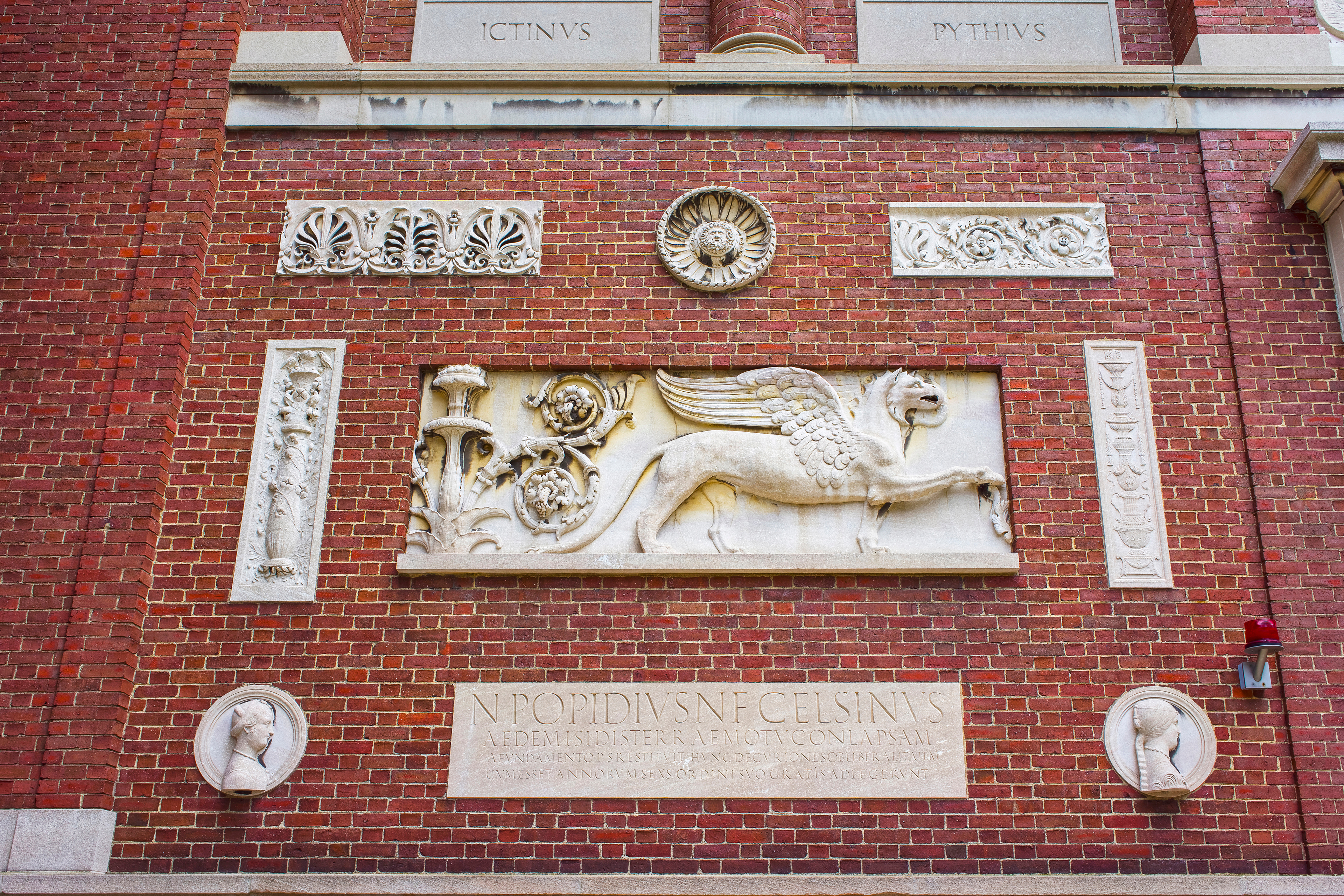
Other Academic Opportunities
Depending on the student’s interests and timeline, there are other academic and clinical opportunities, such as a five-year DMD program that gives individuals time to explore other areas of interest, conduct more research, get involved in international oral health projects, or pursue other degrees.
HSDM also has a Health Sciences and Technology (HST) Program for students interested in biomedical research, quantitative science, or molecular science or for those who want to pursue interdisciplinary research careers. Applicants with strong quantitative backgrounds and experience in math, physics, or engineering are particularly encouraged to apply.
Students who would like to complete a concurrent degree with another school at Harvard are able to do so but must apply and get accepted to both programs independently. Typically, they’ll complete their first year at HSDM and HMS, leave to complete the second degree, and then return to Harvard to complete the last three years of the DMD program.
Harvard DMD-PhD Dual Degree Program
For people who want to pursue a career researching oral and craniofacial biology and interdisciplinary academic dentistry, Harvard offers a joint DMD/Ph.D. program through the HSDM, Harvard Medical School (HMS), The Forsyth Institute, and affiliated hospitals.
Aspiring candidates will need to apply for the DMD program first and will then be interviewed by the DMD/Ph.D. admissions committee. They should indicate interest in this dual degree in their personal statement and send a separate statement of purpose to the director of the program as early as possible.
The DMD-PhD program lasts approximately eight years and consists of three phases. Phase one consists of the first two years of the DMD curriculum, in addition to 1-2 laboratory rotations. The second phase is roughly four years long; students will defend their thesis when required and obtain their Ph.D. degrees, while taking preclinical courses and learning the necessary skills. The last phase is two years and completes the DMD clinical training requirements.
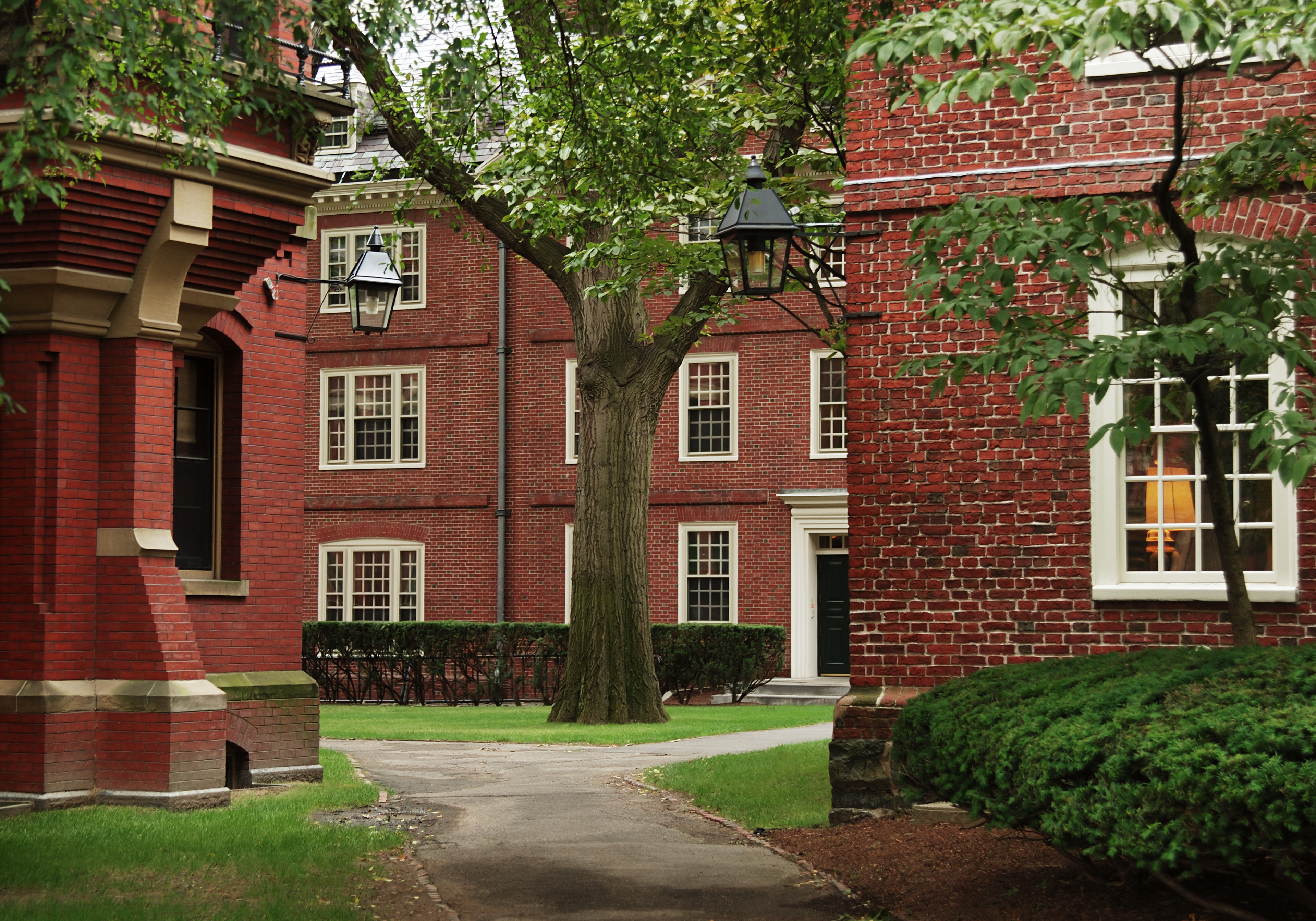
The HSDM Experience
The HSDM academic experience is defined by two key aspects: academic societies and tutorial groups. About 50 HMS and HSDM students are randomly assigned to one of four academic societies, which are headed by faculty from both schools. Each academic society then forms tutorial groups of 8 to 10 students that work together on cases for the duration of a course. In these groups, the students work on a team and learn from each other. In Years 3 and 4, academic societies and tutor groups transition into treatment teams that work together in the Harvard Dental School Teaching Practice.
The experience of the DMD program at Harvard involves many other factors. In this video, past students explain what attracted them to HSDM and why they chose to enroll.
Key Takeaways
Top DMD programs like HSDM are incredibly competitive and the best way to make sure that your application will stand out from the rest is to work with a Leland dental admissions coach. They'll be able to provide personalized advice and pull insights from firsthand experience. To get to know our expert coaches and receive updates on free events, group classes, and more, make sure that you're signed up for Leland.
Work With a Dental School Coach Who Knows What It Takes
Harvard’s DMD program is one of the most competitive in the country—with an acceptance rate below 4%, every part of your application has to stand out. Whether it’s refining your personal statement, mapping out a DAT study plan, or prepping for the interview, expert guidance can make all the difference.
Leland’s dental admissions coaches include former adcom members, top-scoring applicants, and successful DMD grads who know what HSDM is looking for. Book a free intro call to work 1:1 with a coach who’s helped others get into Harvard—and can help you do the same.
For more resources as you apply to dental school, check out these articles:
- Harvard Dental School (HSDM) Tuition & Fees Breakdown
- Writing a Winning Dental School Personal Statement
- How to Get Into a US Dental School as an International Applicant
- How to Get Into Dental School: Essential Tips and Guidelines
HSDM FAQs
Does HSDM accept pass/fail credits for prerequisite courses?
- HSDM accepts pass/fail credits for courses taken during spring, summer, and fall of 2020 and spring and summer of 2021. While not technically required, the program highly encourages applicants to complete prerequisites for a letter grade.
What subject should I major in?
- There is no specific major that is required to apply. Many applicants choose to study something in the sciences, but this is not necessary. They can major in whatever they like as long as they demonstrate strong preparation and skills in the sciences. More important than the major is that the student is an active/involved member of the class and has a variety of interests, talents, skills, and knowledge.
Am I still eligible to apply if I’ve been out of school for a couple of years?
- Yes, prerequisite courses do not have an expiration date.
What is the minimum DAT score and GPA required?
- There is no minimum requirement for DAT or GPA; however, it is preferred that the applicant have a DAT score of at least 20 and a GPA of at least 3.6 overall.
Do I need to have research or shadowing experience?
- No, but you will need to demonstrate familiarity with and passion for the field.
Can I retake the DAT and update my score?
- Yes, but the admissions committee is only able to review each application one time. So, if you’re planning on retaking the DAT, you should notify admissions by email and request that your application be placed on hold until you have a new DAT score. Include the approximate date of your exam and make sure to notify the school of when the hold should be removed.





